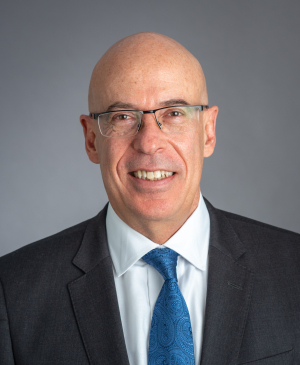Juan de Pablo
Executive Vice President for Science, Innovation, National Laboratories, and Global Initiatives; Liew Family Professor in Molecular Engineering at the University of Chicago; Senior Scientist at Argonne National Laboratory
Edward H. Levi Hall, Suite 601
5801 S. Ellis Avenue
Chicago, IL 60637
O: 773.702.1383
E: depablo@uchicago.edu
Executive Assistant:
Cynthia Sullivan
O: 773.702.9476
E: sullcind@uchicago.edu
As the Executive Vice President for Science, Innovation, National Laboratories, and Global Initiatives, Juan de Pablo helps drive and support the expanding reach of the University’s science, technology, and innovation efforts, along with their connection to policy and industry. He identifies and shapes emerging strategic scientific and technological initiatives, and provides oversight of entrepreneurship and innovation activities at the University’s Polsky Center for Entrepreneurship and Innovation. He also works with faculty, deans, and administrators to build global academic partnerships and international research collaborations while overseeing the University’s international centers.
Juan de Pablo provides leadership for the University’s stewardship of two U.S. Department of Energy National Laboratories — Argonne (through UChicago Argonne, LLC) and Fermilab (through Fermi Research Alliance, LLC) — as institutions to advance science and technology in support of the nation’s interest. He collaborates with other leaders in research and innovation to build programs and links between and among the national laboratories and the University, as well as the Marine Biological Laboratory. Working closely with President Paul Alivisatos, he plays an essential role in the University’s partnership with the Department of Energy.
A prominent materials scientist, de Pablo focuses his research on polymers, biological macromolecules such as proteins and DNA, glasses, and liquid crystals, a diverse class of materials widely used in many fields of engineering. He is also a leader in developing molecular models and computer simulations of complex molecular processes over wide ranges of length and time scales. He heads a research group that develops advanced algorithms to design and predict the structure and properties of complex fluids and solids at a molecular level, and has been a pioneer in the use of data-driven machine learning approaches for materials design.
As a key leader for the Pritzker School of Molecular Engineering, de Pablo has been essential to the School’s development and remarkable growth. He joined the University in 2012 as one of the first PME faculty appointments, and established graduate and undergraduate education programs for the School, which now boast more than 500 students. He came from the University of Wisconsin, Madison, where he served as the Howard Curler Distinguished Professor and Hilldale Professor of Chemical Engineering.
The author or coauthor of well over 600 publications and a textbook on Molecular Engineering Thermodynamics, de Pablo holds more than 25 patents on multiple technologies, including nine jointly with Paul Nealey, the Brady W. Dougan Professor at the Pritzker School of Molecular Engineering. The International Technology Roadmap for Semiconductors has identified one of de Pablo and Nealey’s collaborative inventions for directed self-assembly as a technology critical to the semiconductor industry’s miniaturization goals. Another of de Pablo’s patents has been licensed by major health and nutritional products companies and is used throughout the world to stabilize proteins and cells, including probiotics, in glassy materials over extended periods of time without refrigeration. de Pablo has been involved in several startup companies, including, most recently, a startup at UChicago.
Juan de Pablo received the Polymer Physics Prize from the American Physical Society in 2018, the DuPont Medal for Excellence in Nutrition and Health Sciences in 2016, the Intel Patterning Science Award in 2015, and the Charles Stine Award from the American Institute of Chemical Engineers in 2011. Amongst other distinctions, he has delivered the Lacey Lectures at Caltech (2020), the Dodge Lectures at Yale (2018), and the National Science Foundation Mathematical and Physical Sciences Division Lecture (2018). He served as chair of the Mathematical and Physical Sciences Advisory Committee of the National Science Foundation, and the Committee on Condensed Matter and Materials Research at the National Research Council. He is the founding editor of Molecular Systems Design and Engineering, deputy editor of Sciences Advances, and co-director of the Center for Hierarchical Materials Design (CHiMaD).
Juan de Pablo earned a bachelor’s degree in chemical engineering from the Universidad Nacional Autónoma de México (UNAM), as well as a Ph.D. in chemical engineering from the University of California – Berkeley. He conducted postdoctoral research at the Swiss Federal Institute of Technology (ETH) in Zurich, Switzerland. In 2022, he was elected to the National Academy of Sciences for his distinguished and continuing achievements in original research. In 2016, he was inducted into the National Academy of Engineering for the “design of macromolecular products and processes via scientific computation. He is also a fellow of the American Academy of Arts and Sciences, the American Physical Society, the Royal Society of Chemistry, and is a foreign correspondent member of the Mexican Academy of Sciences.
